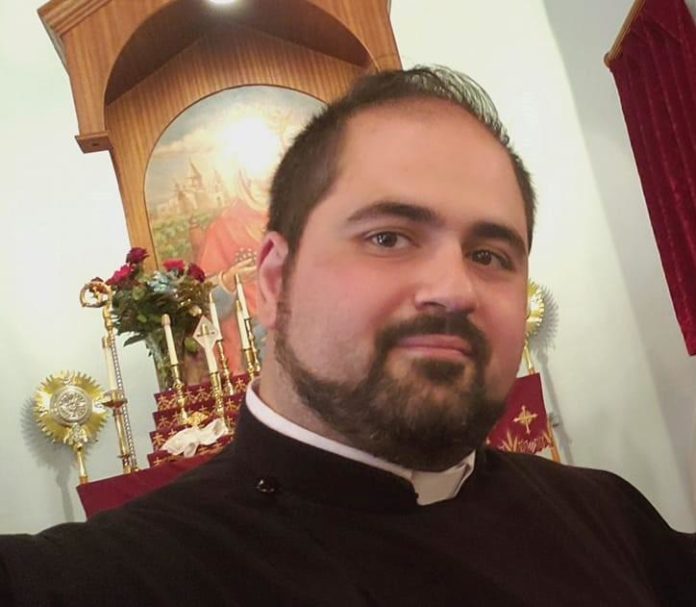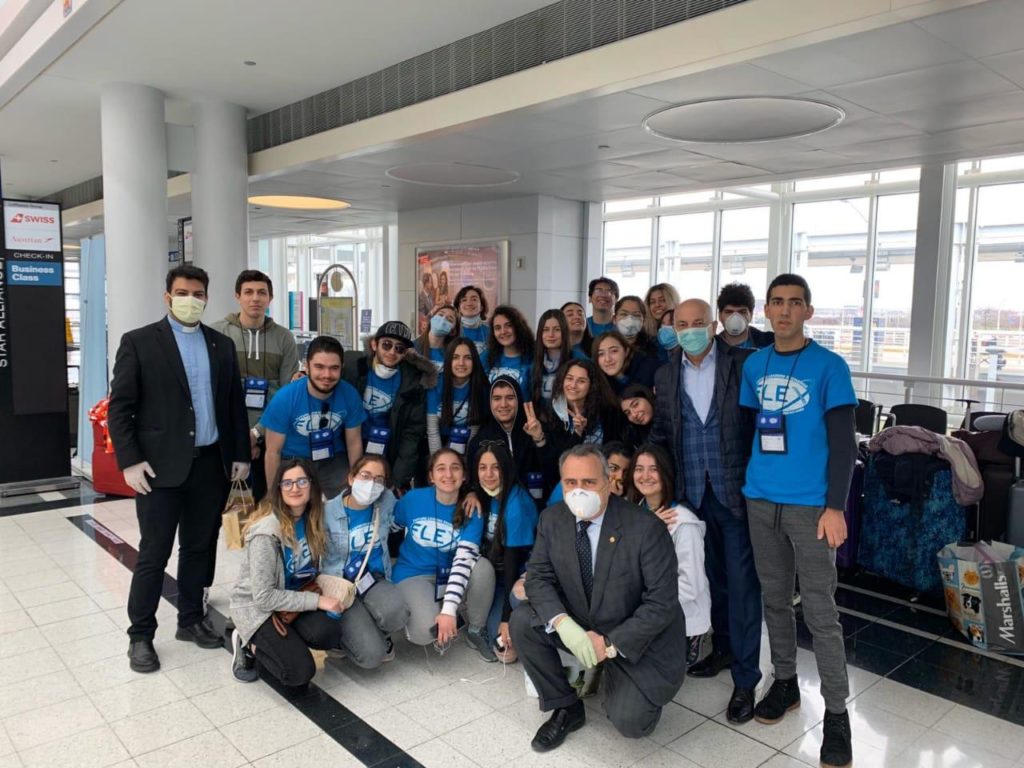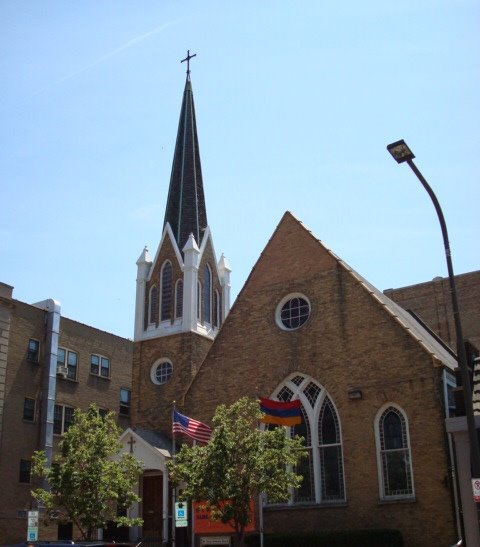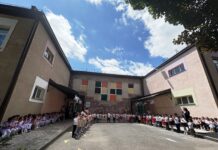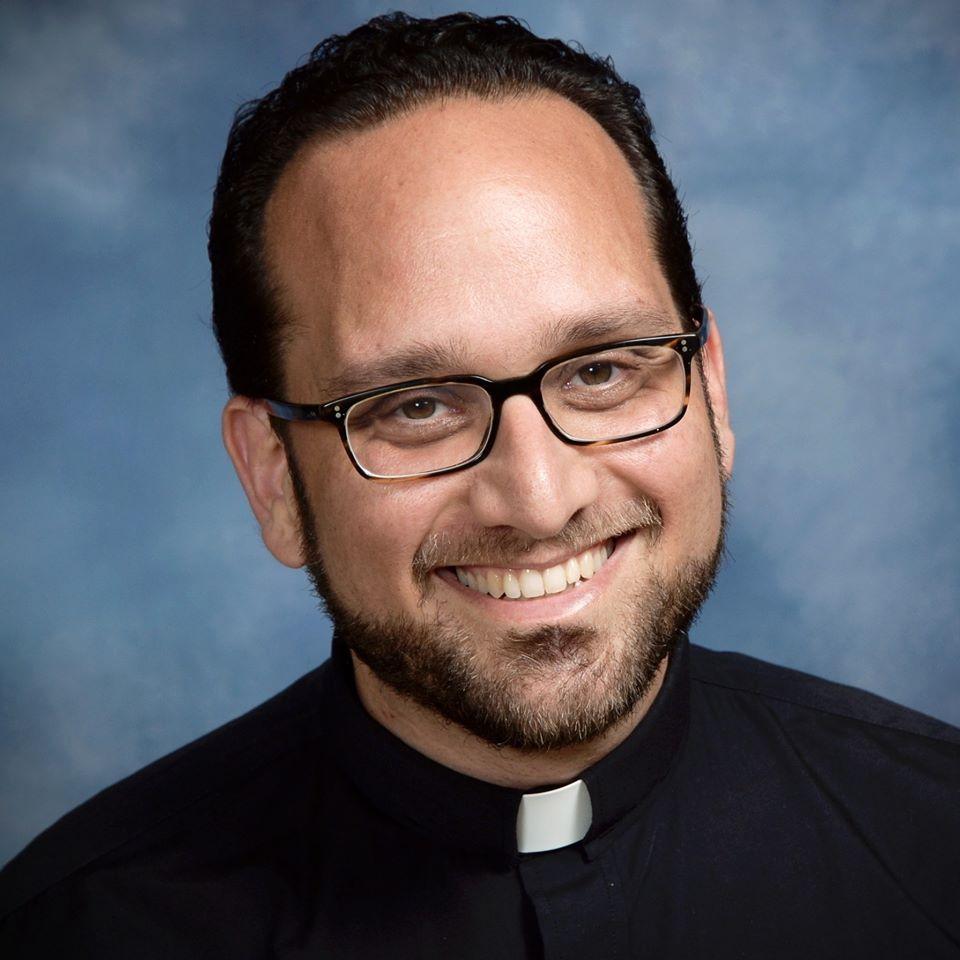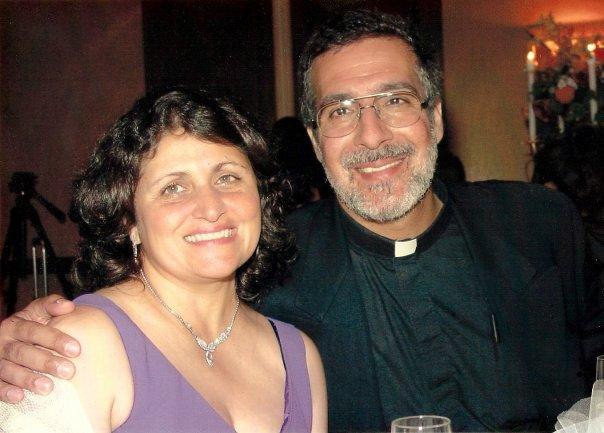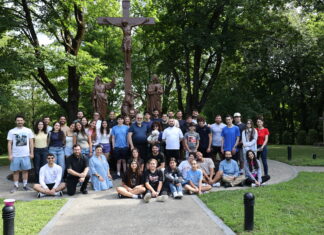By Harry A. Kezelian III
Special to the Mirror-Spectator
CHICAGO/RACINE, Wisc. – “Can I just add one thing before we go?” said Fr. Yeprem Kelegian, retired pastor of St. Mesrob Armenian Church in Racine, Wisconsin, on a diocesan-wide Armenian Church Youth Organization of America (ACYOA) Zoom conference a few weeks ago. “Armenia is really having a hard time with this crisis. It needs our help.” Der Yeprem has been doggedly repeating the same mantra since the COVID-19 crisis started. Armenia needs our help. His suggestion has been to donate to Ayo – the special-project fundraising arm of the Fund for Armenian Relief. (Visit their website at weareayo.com where a link to donate for the COVID-19 Emergency Fund is the first thing you’ll see.)
Der Yeprem, a beloved figure among many in the Armenian Church’s Eastern Diocese – especially the youth, has been known for his activism for many years. He was, after all a child of the protest and social-change era of the 1960s, and his calm and gentle, yet genial and friendly demeanor has not only brought a whole generation deeper into the spirituality of Armenian Orthodoxy, but spurred many to action in the area of service. The Bible’s Letter of James tells us that true religion is “to care for widows and orphans in their distress,” and no one exemplifies this better than Der Yeprem. Der Hayr would be doing this good work whether there was a crisis or not. But as the COVID-19 crisis has taken on world-changing proportions, he isn’t the only one who has been stepping up and giving back.
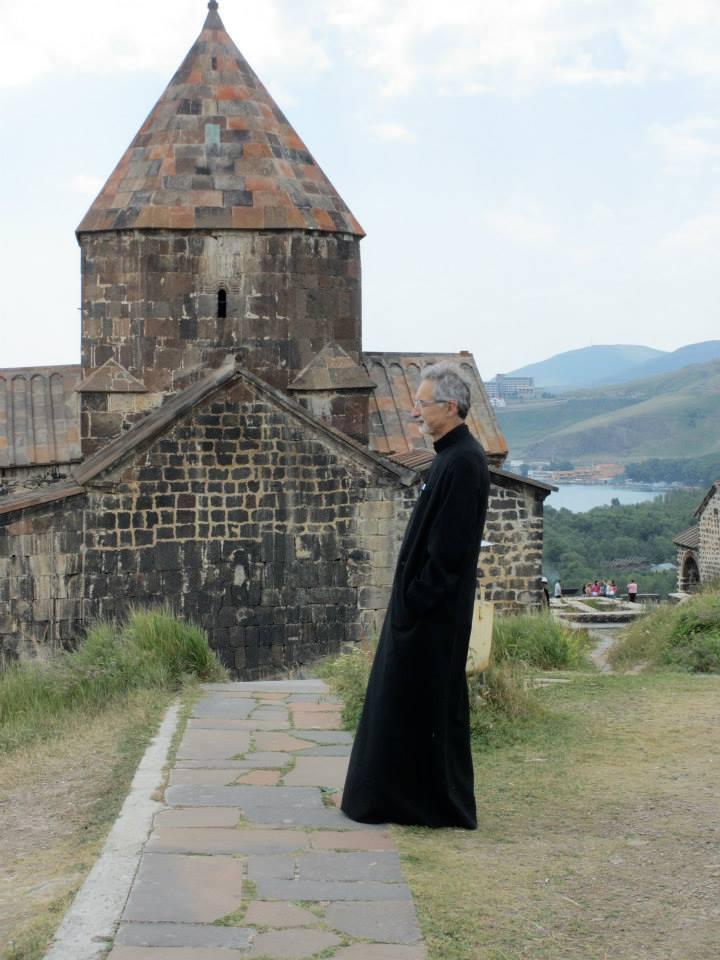
The states of Wisconsin and Illinois combined are home to some 10,000 Armenians, with 5,000 in the Greater Chicago or “Chicagoland” area of Northern Illinois. Aside from the small enclave in the St. Louis area, most Armenians reside in a 100 mile strip along Lake Michigan, starting from parts of Northwest Indiana and the South Side suburbs of Chicago, throughout Chicagoland’s North Side and up to Waukegan, Illinois, then across the state line to the storied community of Racine, Wisconsin, and ending in the Milwaukee metropolitan area.
There are 11 Armenian houses of worship in this region of the country, some of them quite small and dating back to an era when Armenian immigrants congregated in small communities in the factory towns that dotted the Lake Michigan coast. Even the Chicago parish has the feel of a small tightknit village on holidays rather than a large urban community (the biggest Illinois parishes are actually St. James in Evanston, and All Saints in Glenview, affiliated with the Prelacy). One of the benefits of this state of affairs is that a good deal more people are asked to get involved, since each of these 11 parishes needs to have its priest, deacons, choir, organist, women’s guild, youth groups, and so on. People feel that they owe it to community to step up and help out.



